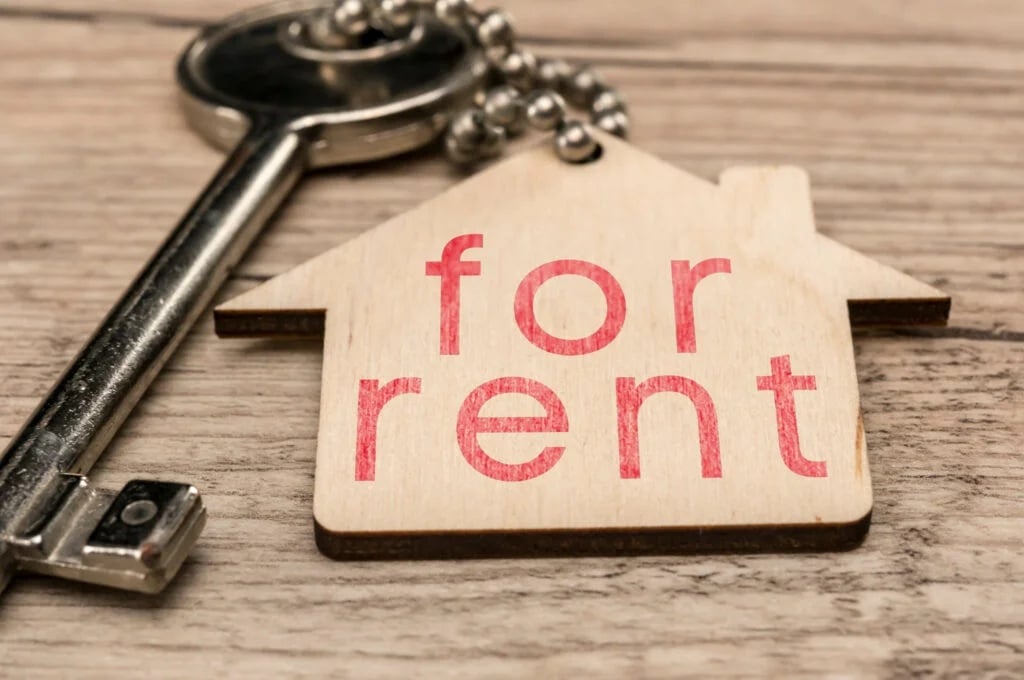SC Escape Clause vs. Sold Conditionally: What Buyers Need to Know

Sold Conditionally or Sold Conditionally with an Escape Clause, that’s the problem! Yes, they can feel like legal jargon at first glance. Indeed, they are! And understanding the difference between the two can make or break your deal.
They might seem pretty similar, but they actually mean very different things, especially if you’re buying or selling. In real estate, timing is everything, like playing chess; if you don’t know the rules, you could lose before you’ve even made your first move.
Hello, my name is Jatin Gill, and I’ll break down what SC and SCE mean in this post, show you how they work, and what you need to watch out for.
What Does “Sold Conditionally” Mean?
Sold Conditionally’ means the seller has said yes to an offer, but it’s not a done deal just yet. The sale still hangs in the balance and depends on a few conditions being met, usually within 5 to 10 business days; a handshake, not a signature, at least not yet.
Common Conditions in Ontario
- Financing: Final mortgage approval from the lender
- Home Inspection: Professional review of the property’s condition
- Sale of Buyer’s Home: Completion of buyer’s current property sale
- Appraisal: Confirmation that the price matches market value
- Title Search: Verification of ownership and legal standing
- Land Survey: Review of boundaries and possible encroachments
- Fixtures and Chattels: Agreement on included items like appliances or lighting
For Sellers
- Property status marked as “conditionally sold”
- Backup offers accepted as secondary
- Ongoing risk of buyer not meeting conditions
For Buyers
- Short window to meet financing or inspection needs
- Possibility of losing the property if conditions aren’t met
- Temporary security with deadlines strictly enforced

Understanding “Sold Conditionally With An Escape Clause” (SCE)
Now here’s where things get more layered. A property listed as SCE means the seller accepted a conditional offer but still wants to keep options open. With this clause, they can continue marketing the home and entertain new offers.
What is an Escape Clause?
An escape clause is a clause in a conditional offer that allows the seller to cancel the agreement if a better offer comes along — but only after giving the current buyer a set amount of time (usually 24–72 hours) to remove their conditions, like financing or home inspection.
In most real estate deals in Ontario, only the buyer has the power to walk away if their conditions aren’t met. But with an escape clause, the seller also gains flexibility.
This clause is common when a buyer’s offer is conditional on selling their current home. The seller can continue marketing the property and accept backup offers. If they get one, they trigger the escape clause, and the original buyer must act quickly or risk losing the deal.
What Does the SC Escape Clause Mean?
An SC Escape Clause (Sold Conditionally with Escape Clause) means the home is conditionally sold, but the seller can still accept other offers. If the seller receives a better offer, they can give the current buyer a short window (usually 24–72 hours) to remove their conditions (like financing or home sale) or walk away.
Basics:
- Conditional offer acceptance by seller
- Active listing status with ongoing showings
- Notification to original buyer if better offer arrives, with 24 to 72-hour decision window
Tip: The timeline might be based on business days or calendar days. In Ontario, it’s usually calendar days.
Why sellers use it:
- Reduced risk of being stuck in limbo
- Increased flexibility in hot or uncertain markets
- Common in suburban areas like York Region and Durham, where buyers need to sell their own homes first
When you’ll see it:
- More likely in a buyer’s market where conditions are longer and offers are softer.
- Less common in the downtown Toronto core, where firm offers are king.
Benefits for Buyers:
- Flexibility to accept conditional offers and keep things moving
- Can attract more potential buyers
- Chance to hold a property without committing fully right away
Risks for Buyers:
- Higher chance of losing the property if an escape clause is triggered.
- Must act quickly to waive conditions or risk losing the deal.
- Emotional stress from uncertainty during conditional periods.
Benefits for Sellers:
- Flexibility to accept conditional offers and keep the sale moving.
- Ability to attract a wider range of buyers.
- Escape clauses allow considering better offers without being locked in.
- Backup offers provide safety nets if first deals fall through.
Risks for Sellers:
- Managing multiple offers and conditional timelines can be complex.
- May face uncertainty if buyers don’t meet conditions on time.
- Need clear communication to avoid disputes over clauses and deadlines.
Real talk from the forums:
Reddit users often put it plainly:
- “The escape clause was to protect the seller … the first buyer has to waive conditions or lose the house.”
- “SC escape clause looks to protect the interest of both the buyer and the seller.”
The quote from: https://www.reddit.com/r/TorontoRealEstate/comments/xqfxht/sold_conditional_escape_clause/?utm_source=chatgpt.com
May sound intimidating at first, but it’s a practical tool, used when sellers want to lock in a buyer but not shut the door on better offers.

Practical Next Steps
These few smart moves can help a lot:
For Buyers:
- Mortgage pre-approval in place
- Minimal, essential conditions only (e.g., financing or inspection)
- Stronger, cleaner offers for competitiveness if escape clause triggered
For Sellers:
- Legal review of escape clause wording
- Clear communication of timelines and notice periods
- Strategic use of SCE for flexibility without risking the sale
Case Study: A Tale of Two Buyers in Vaughan’s Glen Shields Neighbourhood
The Situation: Emily finds her dream condo in Vaughan’s Glen Shields. She puts in an offer, accepted, but with conditions: she needs financing & time to sell her condo. The seller agrees, but adds an escape clause giving her 48 hours to firm up if a better offer comes along.
What Happens Next: A week later, Jordan, shows up, another buyer. What does he have? Firm offer, no conditions, & higher price. The seller gives Emily the heads-up: the escape clause has been triggered. She’s got 48 hours to firm up her offer or step aside.
Emily now has 48 hours to either:
- Waive her conditions and go firm (even though she hasn’t sold her condo yet), or
- Back out and let Jordan buy the house.
The Outcome: Emily, unsure if her condo will sell in time, chooses to walk away. The seller accepts Jordan’s offer, and the property is sold firm.
The Lesson: SCE means a foot in the door for buyers, but they also come with real pressure. For sellers, it’s a way to hedge bets in an unpredictable market. In this case, both parties acted within their rights, but timing was everything.
Key Differences Between SC and SCE
As I told you before, for buyers and sellers, understanding the difference between Sold Conditionally (SC) and Sold Conditionally with an Escape Clause (SCE) is vital. Here’s how they compare:
- Market Status:
- SC: The property is conditionally sold and less actively marketed. Backup offers may be accepted, but are secondary.
- SCE: The property stays actively marketed, and sellers welcome new, potentially better offers.
- Seller Flexibility:
- SC: The seller is committed to the buyer until the conditions are met or fail.
- SCE: The seller can pivot to a better offer by triggering the escape clause.
- Buyer Risk:
- SC: Moderate risk. Buyers have time to fulfill conditions without immediate competition.
- SCE: Higher risk. Buyers may lose the property if another firm offer comes in.
- Backup Offers:
- SC: Backup offers are accepted as secondary and only become active if the original deal falls through.
- SCE: Backup and competing offers are actively considered and may trigger the escape clause.
- Typical Use Case:
- SC: More common in stable or slower markets where buyers & sellers have more time.
- SCE: Favoured in competitive markets like the GTA, where sellers want to maximize offer potential.
Comparison Table
| Aspect | Sold Conditionally (SC) | Sold Conditionally With Escape Clause (SCE) |
| Market Status | Conditionally sold, less actively marketed | Actively marketed, open to new offers |
| Seller Flexibility | Committed to buyer until conditions expire or fail | Can accept better offers with escape clause |
| Buyer Risk | Moderate; time to meet conditions without competition | Higher; risk of losing to competing offer |
| Backup Offers | Accepted as secondary, activated if deal fails | Actively considered, may trigger escape clause |
| Typical Use Case | Stable markets or less urgent sales | Competitive markets to maximize offer potential |

Navigating Offers on SC & SCE Properties
Whether you’re eyeing a property that’s SC or one with an SCE, knowing how to approach your offer can make all the difference.
Making Offers on SC Properties
- Submit a Backup Offer: Even if the property is under a conditional deal, you can still make a backup offer. If the first deal falls through, yours moves up.
- Stay Informed: Your realtor can help a lot, work with them and monitor the status of the listing, especially if conditions like financing or inspection are shaky.
- Be Patient but Prepared: These deals can collapse unexpectedly. If you’re serious, have your documents ready in case the door opens.
Making Offers on SCE Properties
- Yes, You Can Compete: Properties with an escape clause are still active. You can come in with a better or firmer offer to challenge the original buyer.
- Triggering the Clause: If the seller accepts your offer, the original buyer gets a short window (usually 24–72 hours) to waive their conditions or step aside.
- Speed Is Key: Be ready to act fast. Firm offers or offers with fewer conditions stand out in these situations.
Strategic Tips
For Buyers:
- Mortgage pre-approval in place before offering
- Minimal, essential conditions only (e.g., financing, inspection)
- Clear understanding of condition timelines and escape clause windows
- Communication with your real estate agent
- Full readiness to firm up quickly if needed
For Sellers:
- Market conditions review before accepting conditional offers
- Strategic use of escape clauses in competitive areas
- Clear timelines and expectations outlined in the agreement
- Backup offers tracked and organized for easy activation
- Legal review of offer terms, especially with escape clauses
Tip: Review agreements with a real estate lawyer to make sure about clarity & protection.
Read: Why You Need a Real Estate Lawyer for Your Property Purchase
Bottom Line
The difference between SC and SCE saves you from unexpected headaches down the road. Being market-savvy means making smarter moves, no matter what you do, whether you’re buying your first condo or selling in a fast-moving market. The difference between an average investor and a smart one often comes down to knowledge. In this case, understanding how SC and SCE work gives you real leverage at the negotiation table.
Still have questions or facing a tricky offer situation? At Platinum Condo Deals, we can help you navigate every step with clarity and confidence. Get in touch today and make your next move with confidence.
Jatin Gill, an esteemed authority in real estate writing, is celebrated globally for his unparalleled expertise. With over 20 years in the industry, he has authored more than 1,000 SEO-friendly articles covering every facet of real estate. Specializing in pre-construction projects, Jatin's extensive knowledge spans all real estate topics. His content is a go-to resource for anyone seeking comprehensive, insightful, and up-to-date information in the real estate market.
Learn MoreFAQs
It means the seller accepted an offer, but the sale depends on certain conditions, like financing or inspection, being met within a set time.
Typically, 5 to 10 business days, depending on what’s agreed in the offer. The clock starts once the deal is signed by both parties.
An escape clause lets the seller keep marketing the property and accept better offers. The original buyer must respond quickly or lose the deal.
Usually between 24 to 72 hours. The timeframe should be clearly stated in the agreement, and could be in business or calendar days.
Yes. Backup offers can be accepted and activated if the original deal collapses, especially common with SC listings.
Additional Resources















Awards & Achievement










Subscribe for the Latest Condo Deals
Apologies, our subscription list for this month is now full. Please register on our website to secure your spot for next month. Thank you for your interest!

